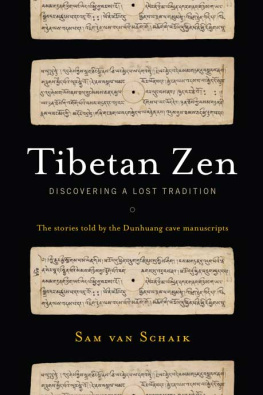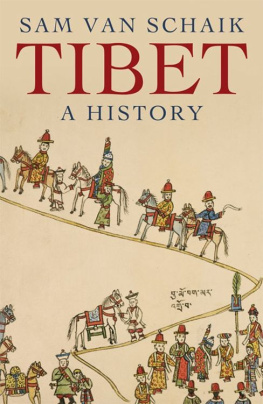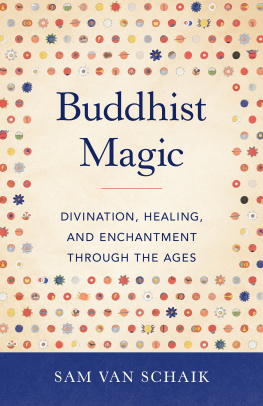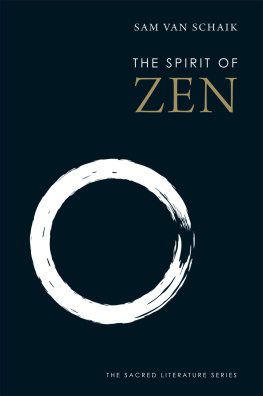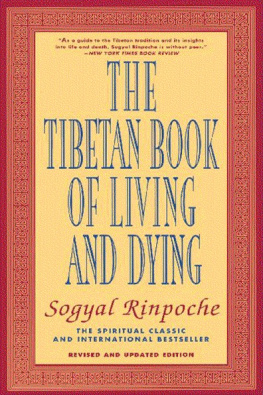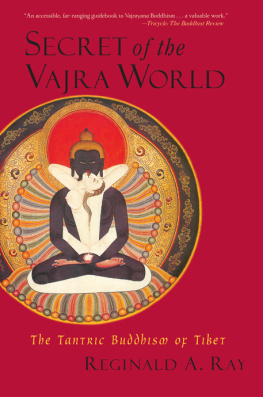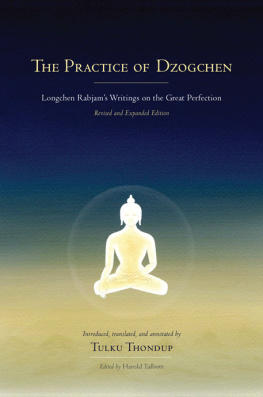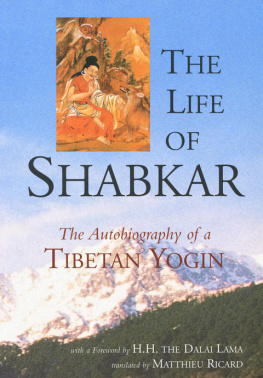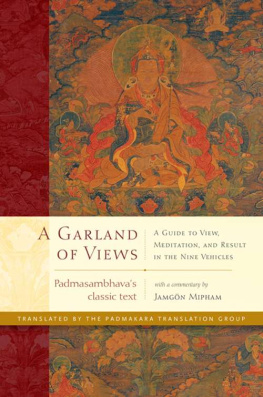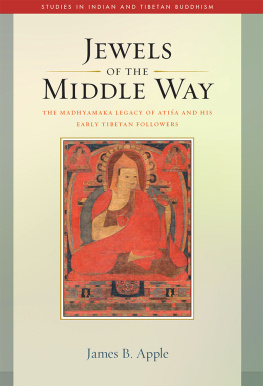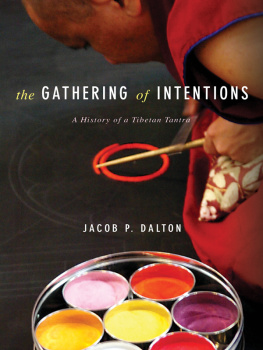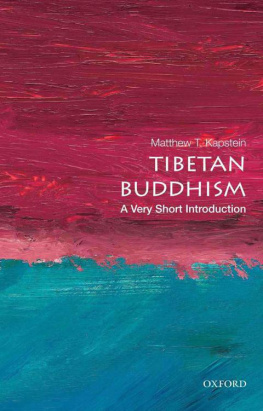After the Tibetan Emperor Tride Tsutsen (Me Agtsom, 70455 CE) invited the Zen teacher Moheyan from Dunhuang to Tibet, the Zen teaching was widely spread in Tibet. Jingjue, the student of Xuanze, wrote Record of the Masters and Students of the Laka. Although this text, based on a gradual approach to the Zen teachings, was translated into the Tibetan language, the sudden enlightenment teachings of Zen were already widespread in Tibet, and they were the subject of the Samye debate. The Chinese character Zen () has two parts that mean symbolize the single or inseparable meaning, while the great Kagyu master Phagmodrupa says nonduality is Mahamudra. Therefore, there is no essential difference between Zen, Mahamudra, and Dzogchen teachings.
His Holiness the Drikung Kyabgon Chetsang, author of The Practice of Mahamudra
Zen points directly to the heart mind, but it does so from within particular cultures, particular perspectives. This collection of the teachings of a long lost and now found Tibetan school of Zen gives us another of those perspectives. Master Moheyan and the other teachers of the Tibetan school of Zen are clearly our relatives on the Zen way. And Ive found their unique perspectives enriching my own understanding, both encouraging and challenging. I was particularly taken with the Tantric influences on Tibetan Zen. This selection of some core texts of Tibetan Zen provides us another map through the mysteries of our human hearts and minds and helps us walk our own way to realization. How wonderful!
James Ishmael Ford, author of If Youre Lucky, Your Heart Will Break and Zen Master Who
Tibetan Zen is a title both provocative and evocativeprovocative because such a tradition is supposed never to have existed, evocative because it invites its readers to imagine a lost world of profound religious exchange, a time before Buddhist sectarianism had set in, when monks along the ancient Silk Road explored innovative new practices across cultures. In this beautifully written book, Sam van Schaik guides his reader into this world, bringing the Dunhuang manuscripts to life through his careful analyses. The result is a comprehensive presentation of an extinct and in many ways unique Buddhist tradition, a study whose brilliant insights into early esoteric ritual, the bodhisattva precepts, and much more raise the field to new levels of sophistication, shedding light on the origins of both Tibetan Buddhism and Chinese Chan/Zen.
Jacob P. Dalton, author of The Taming of the Demons
Tibetan Zen is an unprecedented work. Van Schaiks explanations expand our notion of just what Tibetan Buddhism wasand iswhile his translations offer contemporary readers the opportunity to expand their own minds by engaging classic Zen writings from a deeply creative period of Buddhism.
Kurtis R. Schaeffer, University of Virginia
ABOUT THE BOOK
Until the early twentieth century, hardly any traces of the Tibetan tradition of Chinese Chan Buddhism, or Zen, remained. Then the discovery of a sealed cave in Dunhuang, full of manuscripts in various languages dating from the first millennium CE, transformed our understanding of early Zen. This book translates some of the earliest surviving Tibetan Zen manuscripts preserved in Dunhuang. The translations illuminate different aspects of the Zen tradition, with brief introductions that not only discuss the roles of ritual, debate, lineage, and meditation in the early Zen tradition but also explain how these texts were embedded in actual practices.
SAM VAN SCHAIK received his PhD in Tibetan Buddhist literature from the University of Manchester, England. He currently works at the British Librarys international Dunhuang Project in London, researching early Tibetan manuscripts, and is the author of Tibet: A History (Yale, 2011).
Sign up to receive news and special offers from Shambhala Publications.

Or visit us online to sign up at shambhala.com/eshambhala.
Tibetan Zen
Discovering a Lost Tradition
Sam van Schaik
SNOW LION
BOSTON & LONDON
2015
SNOW LION
An imprint of Shambhala Publications, Inc.
Horticultural Hall
300 Massachusetts Avenue
Boston, Massachusetts 02115
www.shambhala.com
Cover design by Katrina Noble
2015 by Sam van Schaik
All rights reserved. No part of this book may be reproduced in any form or by any means, electronic or mechanical, including photocopying, recording, or by any information storage and retrieval system, without permission in writing from the publisher.
Library of Congress Cataloging-in-Publication Data
Van Schaik, Sam, author.
Tibetan Zen: discovering a lost tradition / Sam van Schaik.
First edition.
pages cm
eISBN 978-0-8348-0284-1
ISBN 978-1-55939-446-8 (paperback: alk. paper)
1. Zen BuddhismTibet RegionDoctrinesHistory. 2. Zen literatureChinaDunhuang CavesTranslations into English.
I. Title.
BQ9262.9.T53V36 2015
294.392709515dc23
2014042693
To Ananda
CONTENTS

PUBLISHERS NOTE

This book contains diacritics and special characters. If you encounter difficulty displaying these characters, please set your e-reader device to publisher defaults (if available) or to an alternate font.

This book has its beginning in work that I did with Jacob Dalton on the Tibetan Dunhuang manuscripts during the years 2002 to 2005. In the years that followed, I was able to spend time with John McRae and other Sinologists, from whom I learned much about Chinese Zen, or Chan. In 2010 I was awarded a three-year grant by the British Academy to study and translate the Tibetan Zen manuscripts. During this project I had the privilege of working with Drikung Kyabgn Chetsang Rinpoche to create online editions of all the Tibetan Zen texts, now available at the website of the International Dunhuang Project. I have been lucky to work with many great colleagues at the British Library and would especially like to thank Burkhard Quessel and Susan Whitfield for their support. My erstwhile colleague Imre Galambos has always been willing to answer my questions about Chinese sources. Finally Id like to thank Nikko Odiseos of Shambhala Publications for his interest in this book, and Michael Wakoff for his sympathetic copyediting.

| BD | Dunhuang manuscripts in the National Library of China |
| D | The Derge edition of the bka gyur and bstan gyur |
| IOL Tib J | Tibetan Dunhuang manuscripts in the British Library |
| Or.8210 | Chinese Dunhuang manuscripts in the British Library |
| Or.15000 | Tibetan manuscripts from Central Asian sites in the British Library |
| Pelliot chinois | Chinese Dunhuang manuscripts in the Bibliothque nationale de France |
| Pelliot tibtain | Tibetan Dunhuang manuscripts in the Bibliothque nationale de France |
| T | Taisho Tripiaka: the Chinese Buddhist canon |
When references are given to manuscripts, r refers to the recto (front) and
Next page
